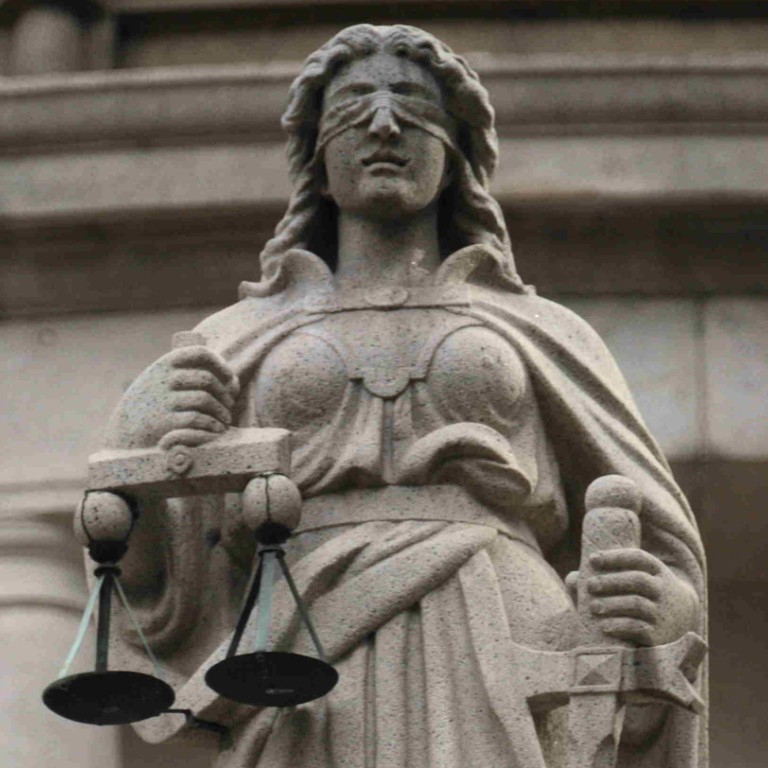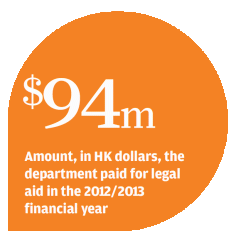
Lack of transparency on legal aid decisions criticised
Law Society vice-president urges Legal Aid Department to clarify its reasons behind decisions on whether or not to fund criminal appeals
The Legal Aid Department's decision-making process is impenetrable when it comes to whether or not it grants funding for criminal appeals, a vice-president of the Law Society says.

"We don't know their thinking process. It's like an operation in a black box," Hung said. "If the department thinks there's no substance in a trial lawyer's opinion, it should give reasons."
Hung's criticism came after the Court of Appeal's Mr Justice Frank Stock expressed concern about the refusal of legal aid in what he saw as a clearly meritorious case in a judgment handed down in September.
"The instances of those denied legal aid for clearly arguable cases ought to be a matter of considerable concern to those interested in the administration of justice. But the periodic expressions of concern … over the years seem to have no effect," Stock wrote.
In that case, Yeung Kwun-kuen was denied legal aid and had to represent himself appealing against a 28-month jail term imposed by the District Court. The appellate court replaced the jail term with a two-year probation for theft and deception.
Criminal legal aid provides a solicitor's services and, if necessary, a barrister to represent the defendant in cases tried in the District Court and Court of First Instance; for committal proceedings during which magistrates decide whether to transfer the case to a higher court; and for criminal appeals.
The department paid HK$94 million in legal aid in the 2012/13 financial year, down from HK$102.7 million the year before.
The department's vetting of legal-aid requests for civil lawsuits earlier drew flak from the Bar Association for setting the bar higher than required by the law.
Under the law, financially eligible applicants can secure legal aid to launch criminal appeals if they have valid grounds and if it is in the interest of justice.
If a defendant funded by legal aid is convicted after trial, his lawyer has a duty to submit a report to the department detailing whether the person has reasonable grounds to appeal.
The Director of Legal Aid is required by Legal Aid in Criminal Cases Rules to consider that lawyer's opinions in vetting any application for financial help.
If the director rejected the application, justice called for an explanation, Hung said. "If the department does not trust the opinions, it should explain why," he said.
Hung also raised the question of how an application is vetted.
It can be problematic if the department reviews only the trial judge's reasons for the verdict, as the judge could have erred while summing up the facts, he said.
Hung suggested that the department also review transcripts of the trial before making its funding decision.
